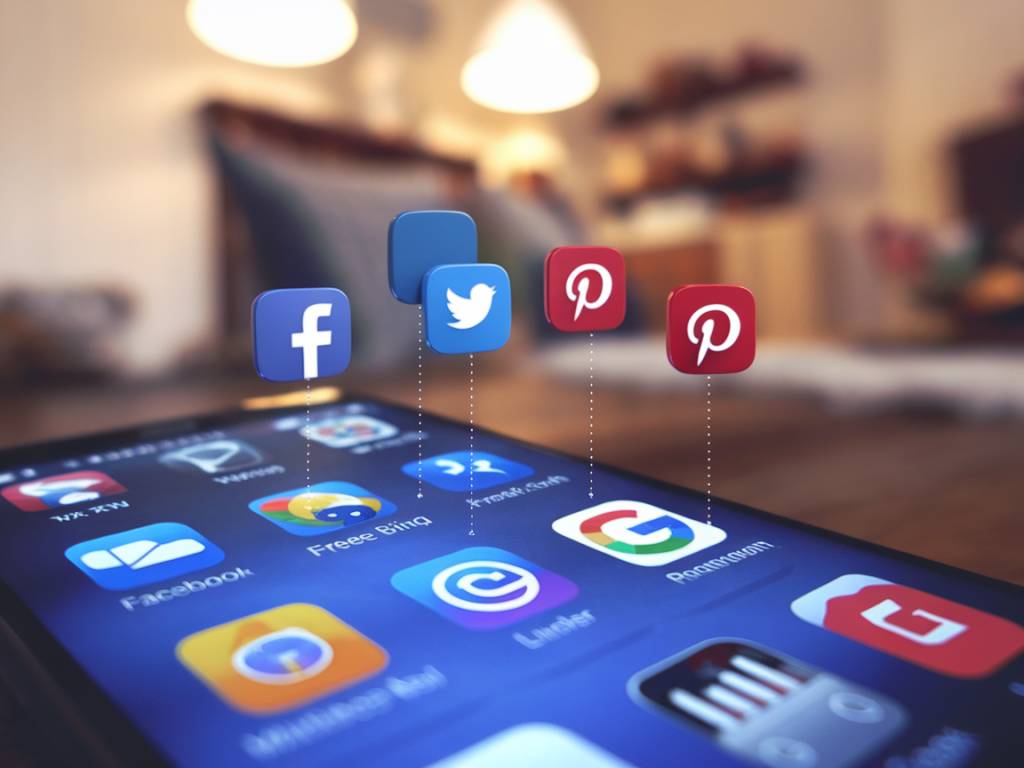Hey there, fellow tech enthusiasts! It’s Sean, your trusty guide through the quirky and often bizarre world of technology. Today, I’m diving into the murky waters of “free” mobile apps. Ever wondered how these apps make money despite flaunting their « free » status? Let’s take a wild ride into the wild west of personal data and app monetization strategies. Grab your popcorn and let’s get into it!
The Illusion of Free
The term “free” is simply too enticing to resist. I mean, who doesn’t love getting something for nothing? But, as they say, there’s no free lunch, or in this case, no free app. While you might not be handing over your hard-earned cash, you’re giving away something often more valuable—your personal information.
Free apps have figured out how to monetize in the most ingenious ways, and it’s all anchored in your data. This is where the nitty-gritty details of your digital life become cash cows for app developers. Curious to see how? Let’s find out.
Data Mining: The Treasure Chest Beneath Your Screen
Ever noticed how sometimes it feels like your phone knows you better than you know yourself? That’s not magic—it’s data mining. Free apps often collect data like your location, browsing habits, and even your personal interests. This treasure trove of information is then often sold to third-party companies, who use it to target you with tailored ads.
Here’s a not-so-small list of data points these apps might collect:
- Your location data (yes, even when you’re not using the app).
- Your search history.
- Your social media activities.
- Your purchasing behavior.
- Your contact list and even your messages.
With each tap and swipe, you’re generating data that’s worth its weight in gold, allowing companies to serve you eerily precise advertisements. Talk about the power of information!
In-App Advertisements: The Annoying Pop-ups with a Hidden Agenda
Ah, the dreaded in-app ad. I mean, who doesn’t love being interrupted by a loud, obnoxious video while trying to achieve a new high score in their favorite game? Okay, sarcasm aside, these ads are strategically placed because they’re a major revenue driver.
Developers get paid every time you witness one of these blue-light delights, but there’s more. These ads are often tailored specifically to you based on—you guessed it—your personal data. Essentially, the data collected from your use of the free app helps advertisers design ads that you’re more likely to click on. Each click then funnels more money into the developer’s pocket. Pretty clever, right?
Freemium Model: Hooked on the Free, Paying for the Fantastic
Another clever strategy is the freemium model. This is where the app is free to download and basic features are available at no cost, but premium features require a payment. It’s like getting a taste of an exquisite dish and then being asked to pay for the main course.
The freemium model is quite effective because it hooks you with its no-cost entry and then slowly reels you in with features that promise to enhance your experience. Whether it’s removing those pesky ads, accessing exclusive content, or unlocking advanced features, many of us have succumbed to the lure of the shiny premium package.
Here’s a quick look at what freemium apps might offer:
- Ad-free experience.
- Exclusive content or levels.
- Enhanced features and functionalities.
- Early access to new updates.
This model is a win-win for developers who get a steady stream of income while keeping their user base engaged and happy.
Subscription Services: The Gift That Keeps on Giving… and Taking
Subscription services are the new black in the world of app monetization. Instead of a one-time payment, users subscribe to an app and pay on a monthly or yearly basis. This model guarantees a continuous revenue stream for developers while often enhancing the user experience.
Apps like music streaming services, fitness programs, or productivity tools have perfected the subscription service. They offer just enough in the free version to make you realize how amazing the full experience would be, and before you know it, you’re subscribed and enjoying the premium perks.
The Role of User Agreements: The Fine Print You (Probably) Didn’t Read
Here’s a shocker: Most of the data mining and selling is outlined in the user agreements we quickly scroll through and accept without reading. Yep, those tiny, dense paragraphs hidden behind “I Agree” essentially give the app developers the green light to use your data as they see fit.
Typically, these agreements will disclose:
- What data is being collected.
- How the data will be used.
- With whom the data will be shared.
- Your rights concerning data collection.
Hardly anyone reads them, and even if we do, deciphering the legal jargon can be like trying to solve a Rubik’s Cube blindfolded. Yet, it’s in these agreements where the true cost of the « free » app is revealed.
Protecting Your Data: What You Can Do
All is not lost! There are steps you can take to reclaim some of your data privacy. While no method is foolproof, being aware and proactive can significantly reduce the amount of personal information you unwittingly give away.
Here are a few tips:
- Read the user agreements (or at least skim for key points).
- Check app permissions and disable ones that seem intrusive.
- Use VPNs to mask your online activity.
- Opt for paid versions if you can; they often collect less data.
- Regularly review and clear your app history and cache.
By implementing these strategies, you can enjoy your apps while keeping your data a little more secure.
So there you have it, folks! The next time you download a « free » app, remember that your personal information is a valuable commodity. Stay savvy, stay safe, and keep enjoying the wonders of technology without becoming a product yourself.
Until next time, happy app-ing!
— Sean

